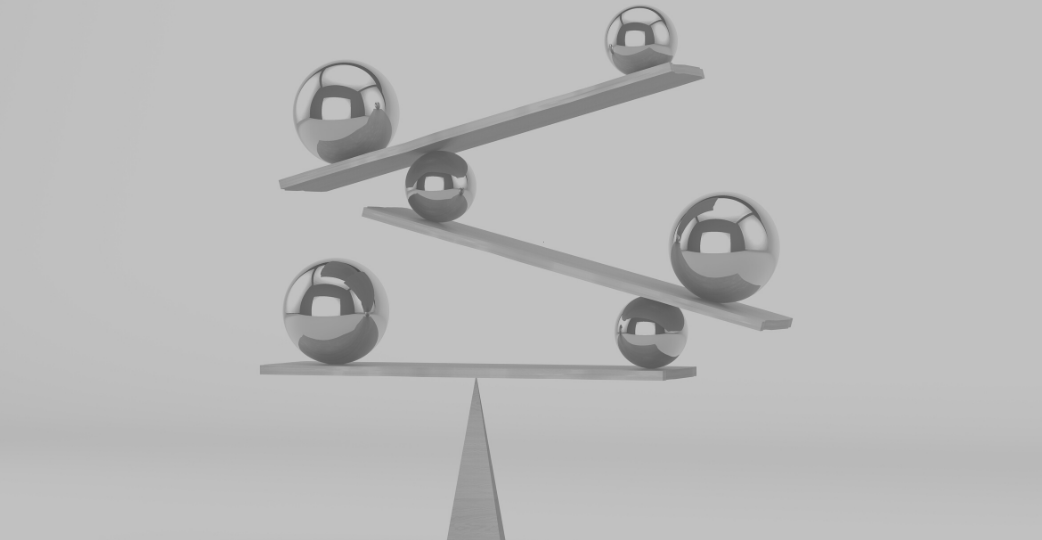
There is no such thing as a work-life balance.
There is only life, and work is part of it.
Have we ever had a work-life balance?
Technology has made it possible to be connected 24/7. However, back in the 1990s, people would come home from work and not be contactable until they returned to the office the following day.
Today, 94% of professionals report working over 50 hours per week, and out of that percentage, half mentioned that they work more than 65 hours per work.
Add into the mix the current climate of COVID 19, where it is now possible to replace your community time with work due to office closures and remote working; I am sure that these numbers will increase.
Everyone agrees that chronic stress affects relationships, health and overall happiness.
We talk about work being a pillar in our lives for many reasons; for example, work brings us purpose, connection, money and a sense of achievement. But we mustn’t have just one pillar in our lives.
Here are fives ways to help your work become part of your life without consuming it.
Switch off
As mentioned, we are connected 24/7, and technology has helped our lives in many ways and made us more productive. However, it has also created the expectation that we should be contactable all day. Now, this expectation can place both external and internal pressure on individuals.
It’s become imperative to make sure that you switch off your devices to allow you to rest, recover and think. Being engaged in an activity is the only way to sustain performance. And by activity, I don’t mean work; if you are with family and friends, be with your family and friends. How many people do you see going for dinner with friends and loved ones, only to be on their phones all the time?
Try not to react to the updates/emails from work. Just like a new fitness regime, this can be hard at the beginning, but don’t give up as you’ll be developing a stronger habit of resilience.
Get in your body
When the pressure is on at work, we only allow time for the crucial things in life that mean we can survive, like eating, sleeping (often not enough), going to the toilet. The problem is that we never spend time getting into the body.
What do I mean by this? Exercise and mindfulness practices. I see so many people exercising to distract themselves or to relieve stress. But they are actually increasing the stress on the system. Exercise is an opportunity to feel your body and get into nature. So next time to go running or to the gym, spend some time feeling your body. How your foot hits the ground or how the arm pushes the dumbbell.
Mindfulness is everywhere – apps, YouTube, workshops. I am sure every week you hear someone talking about mediation, breathwork, or another mindfulness practice. The type of practice does not matter; it’s the doing that does. Short practices during the day can have substantial positive effects; it allows us to check in with what is happening. As I have talked about in the heart rate variability video, our autonomic nervous system includes two branches: the sympathetic nervous system (stress response) and the parasympathetic nervous system (rest and digest response). Short practices enable us to activate our rest and digest system more often. Check out all the ways to improve this stress response in our response here.
The power of your tribe
Humans are designed for connection; there are several physiological benefits of being part of a tribe. But we have moved away from this.
Therefore, it’s essential to understand people’s power in your life, both positive and negative. It can be tough to draw firm boundaries around spending time with people who are not supporting you and aiding in developing limiting mindsets. It’s not selfish. You do need to look after number one, or you will never be able to look after number two, three, four, and so on.
Finding the right tribe takes time, effort, and patience. But the reward is priceless.
Audit the structure of your life
It’s easy to do the same thing time and time again but expect different results. Therefore I am a big believer in a weekly review and check-in. And simply asking:
- What changes could make life easier?
- How can I improve?
- What went wrong last week, and what can I learn?
We all have the answers or know where to find them, but a high-performance coach can help with this. Check out the benefits of coaching here.
One area that I have found to be very helpful to high performing individuals is outsourcing. Sit down and think about what tasks can be outsourced, for example, hiring a virtual assistant or automated online food shopping.
Outsourcing is a win/win situation for all people involved.
Compound Improvement
Improvement is a constant process that takes time and patience. Start small with the outcome you want to achieve. Start to become highly focused on your process from one day to the next. This will improve your productivity and sense of influence over your day.
It’s vital to understand that drastic changes don’t work. Trying to cut your hours from 60 to 40 per week is impossible — focus on small steps.
Progression over perfection
Perfectionism is a tendency in overachievers. The problem with this is that when people become recognised for their success and work, their responsibilities increase. Perfectionism becomes out of reach and stops progress because we want everything to be perfect.
Let go and focus on progress and enjoy the journey. It’s easier said than done in a culture where we want success as fast as possible but understanding that there is no such thing as work-life balance is a great way to start.
Lee
Director and Founder
If you have not already check out our youtube channel for more videos on performance, recovery and stress here.
